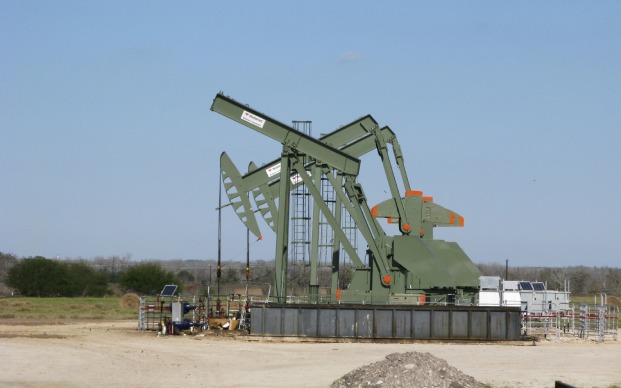Oil prices slipped on Thursday, adding to an overnight plunge as China moved to free up its strategic reserves following news that the US was asking major crude consumers to consider a coordinated release of stocks to lower prices.
The bid by the US administration to shock markets comes as inflationary pressures, partly driven by surging energy prices, starts to produce a political backlash, as the world fitfully recovers from the worst health crisis in a century.
US crude was down 84 cents, or 1.1%, at $77.52 a barrel by 0348 GMT, having fallen 3% overnight. Brent crude fell 44 cents, or 0.6%, to $79.84 a barrel after falling 2.6% to the lowest close since early October on Wednesday.
Prices hit seven-year highs last month as the market focused on the swift rise in demand that has come with lockdowns being lifted and economies recovering against a slow increase in supply from the Organization of the Petroleum Exporting Countries (OPEC) and its allies, called OPEC+.
Political Signal
“Should the US administration order an SPR (Strategic Petroleum Reserve) release, that could send a strong political sign,” Citigroup analysts said in a note.
“But … domestic refineries are unlikely to get an extra benefit, as light-end yields appear to have been already maxed out,” they added, referring to margins for producing gasoline and other motor fuels.
US producers have also been reluctant to overspend on drilling after they were punished by investors for gorging on debt to pay for new drills.
The International Energy Agency and OPEC have said in recent weeks that more supply will be available in the next several months. OPEC+ is maintaining an agreement to boost output by 400,000 bpd every month so as not to flood the market with supply.
Coordinated Release
“Releasing strategic stockpiles is only likely to lower oil prices temporarily,” Vivek Dhar, a commodity analyst at Commonweath Bank of Australia, said. “There’s a good likelihood that markets have already priced in such an event.”
The United States and allies have coordinated strategic petroleum reserve releases before, for example in 2011 during a war in OPEC member Libya.
But the current proposal represents an unprecedented challenge to OPEC, the cartel that has influenced oil prices for more than five decades, because it involves China, the world’s biggest importer of crude.
China’s state reserve bureau said it was working on a release of crude oil reserves although it declined to comment on the US request.
A Japanese industry ministry official said the United States has requested Tokyo’s cooperation in dealing with higher oil prices, but he could not confirm whether the request included coordinated releases of stockpiles. By law, Japan cannot use reserve releases to lower prices, the official said.
A South Korean official confirmed the United States had asked Seoul to release some oil reserves.
“We are thoroughly reviewing the US request, however, we do not release oil reserve because of rising oil prices. We could release oil reserve in case of supply imbalance, but not to respond to rising oil prices,” the official said.
- Reuters with additional editing by Jim Pollard
ALSO READ:
Oil Drops On China Intervention To Ease Coal Crunch
Equities, Oil Bounce Back After Week of Delta-led Declines
Refinery shutdowns blamed for China’s Saudi oil imports plunge
WATCH MORE:
























